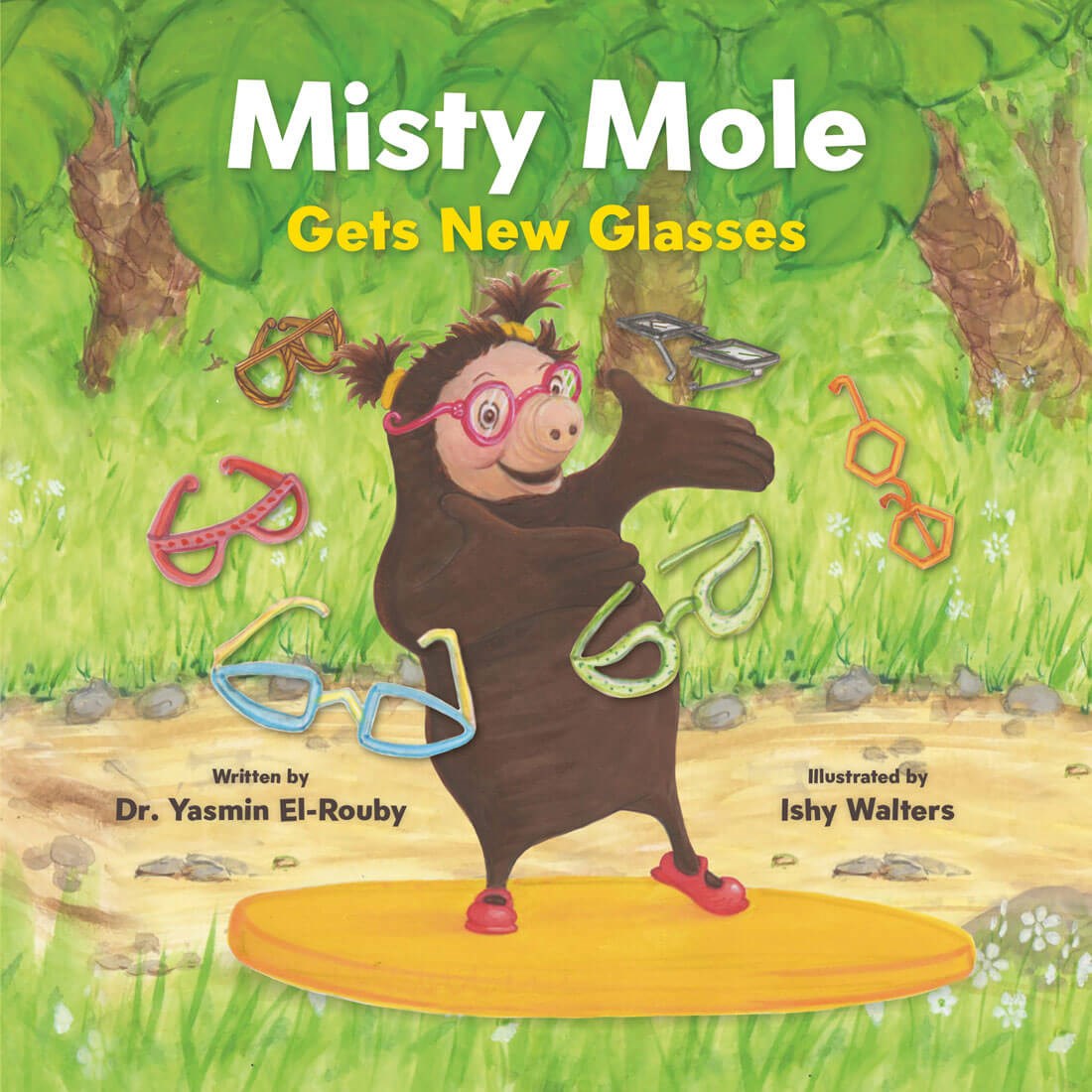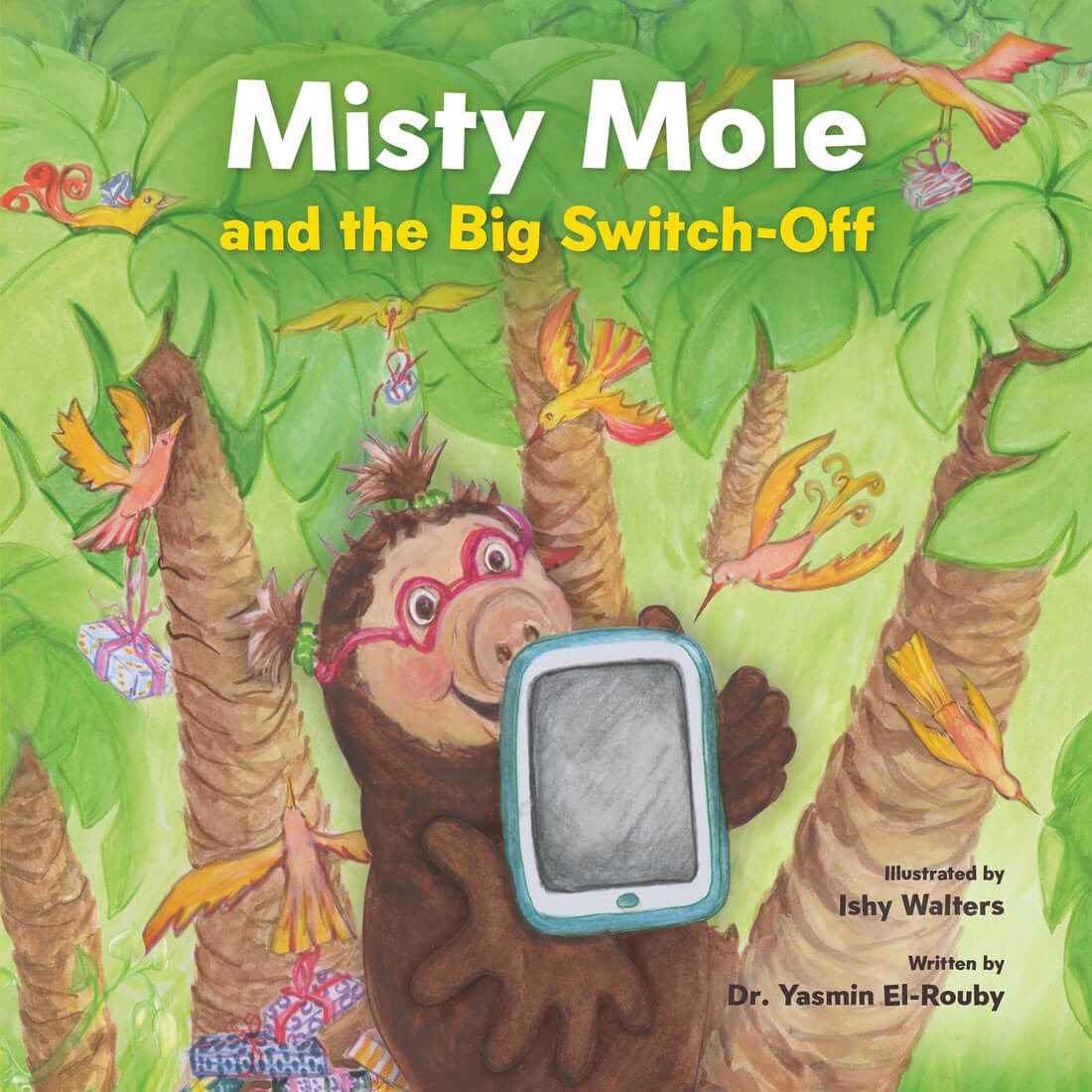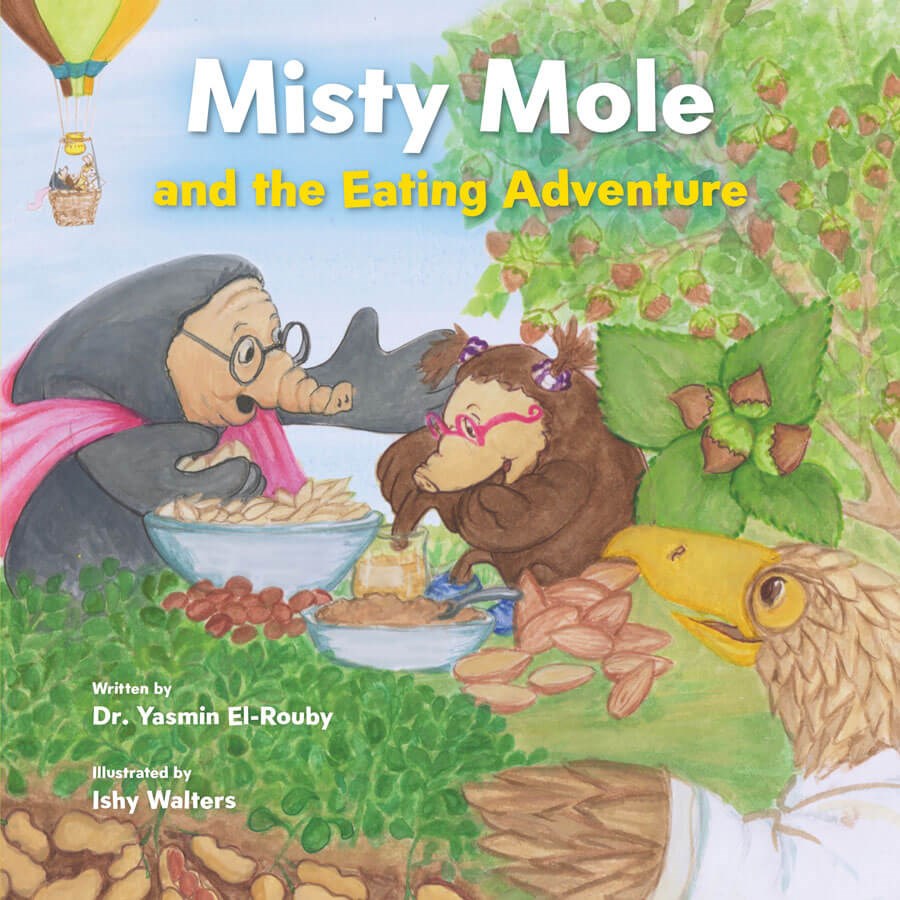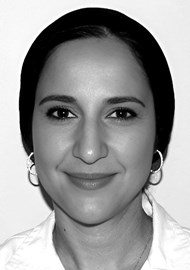Author and Eye Doctor, Dr Yasmin El-Rouby, wishes to raise awareness about common vision disorders. Envisioning a world where preventable eye conditions are caught early, she founded Baseera, a non-profit organisation, to improve access to basic eyecare in developing countries. She has also written the Misty Mole series of illustrated children’s books, each of which highlight the importance of eye health by exploring the causes and effects of myopia, nutrition, and screen exposure. Alongside our review of the series in Eye News Feb/Mar 2024, we also managed to ask a few questions to Yasmin about her stories…
Why did you decide to take these three angles, and in what ways do they connect to each other?
I have always been interested in eye health – in particular children’s eye health. This interest was further amplified while pursuing a Masters in Public Health from the University of London. My passion became centered around promoting eye health through early detection and prevention of vision disorders which can drastically reduce the rates of vision impairment and blindness.
I noticed that although many health conditions were receiving a lot of media attention, the same was not true for many vision disorders, particularly myopia, which is now a worldwide epidemic and starts with school-aged children. There was a huge surge in the prevalence of myopia, especially during the Covid-19 pandemic, and this was largely due to online schooling and the increasing dependency on screens. Sadly, many parents and educators are not even aware of the long-term complications that can be caused by myopia. More awareness is needed to relay this very important message.

My aim through Misty Mole is to spread the word that early detection and awareness about positive lifestyle changes, such as decreased screen time, can significantly curb the onset and progression of myopia. In the same vein, good eye health is directly correlated with good nutrition and can protect our eyes and prevent certain eye diseases. It is important to emphasise the link between healthy bodies, healthy lifestyles and healthy eyes, and I hope my books can help spread this message.
Was it difficult to balance a fun, children’s narrative next to a more serious, health-conscious message?
I wanted my books to be accessible to young children, as awareness must start at a young age. I also wanted a children’s book that could spark meaningful conversations between children and their guardians. However, it was challenging to break down some of these complex topics and health terminology into a simple, engaging and fun book for children to understand and enjoy both on their own and with others.
How was the process of writing children’s fiction while maintaining your career? And what advice would you give to other health care professionals (HCPs) that want to use an artistic medium to promote better health?
Writing children’s fiction was always something that interested me, but I never had the courage to take the first step. I was very fortunate to have more free time during the pandemic to explore my creative side and finally put pen to paper. Once the characters and stories came to life, my passion for writing grew and my imagination grew with it.
The biggest barrier to creativity is resistance and negative self-talk. The first step to overcome this is to realise that we all have a creative side that we can use to share important messages that we are passionate about to our friends, family and the community at large. The first step is the hardest part – the rest will just flow.
Not only are you a doctor of optometry, head of myopia clinic at Cleveland Clinic Abu Dhabi, and now a children’s book author, you are also the founder of Baseera Vision International, a non-profit organisation which is dedicated to “eradicating and preventing simple vision disorders of the eye which are the leading causes of visual impairment and blindness worldwide.” Can you share a little information about this and if your experiences with Baseera influenced the Misty Mole series in any way?
I founded Baseera Vision International in 2018 after a trip to Uganda where we did vision screenings on school children. I realised that at least 20–30% of the children we examined had undetected refractive errors that could easily have been corrected with a simple pair of glasses. Correcting their vision not only improved their educational attainment but also enhanced their social and emotional wellbeing.
Thus, early detection and prevention of avoidable vision impairment and blindness are the central theme of my books, and this was largely inspired by my work with Baseera. Through my books, I aim to raise awareness about the importance of early eye exams and vision screenings in accordance with a healthy lifestyle and good diet to promote optimal eye health.


To round this up, in Misty Mole Gets New Glasses you include a dedication to your patients, saying “Through them, I have learned that having ‘vision’ is not just about seeing with our eyes. True vision means seeing with our hearts too.” Could you expand on this a little?
The definition of the Arabic word ‘Baseera’ means to see with the heart. I never really understood that word until I started working in eyecare and met some incredibly inspirational patients who taught me so much. I am in awe of the patience, determination and resilience that many of my patients with vision impairment and blindness have. Even though they have lost one of their five senses, and arguably the most important one, they still manage to lead very elevated, meaningful and productive lives. That is what made me redefine the true meaning of vision. There are many people who have vision but who are blind to the beauty all around them, and there are many people who cannot see with their physical eye but have true vision.
To read Nouf Alnafisee's review of Misty Mole Gets New Glasses, click here.
COMMENTS ARE WELCOME






